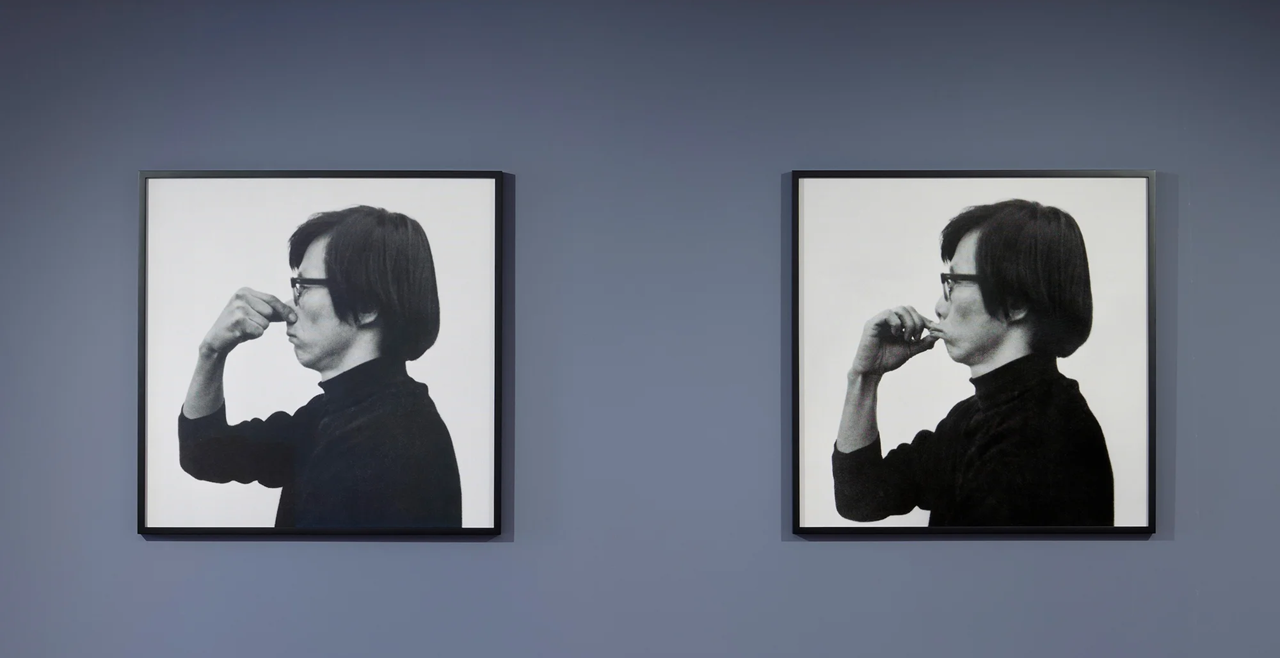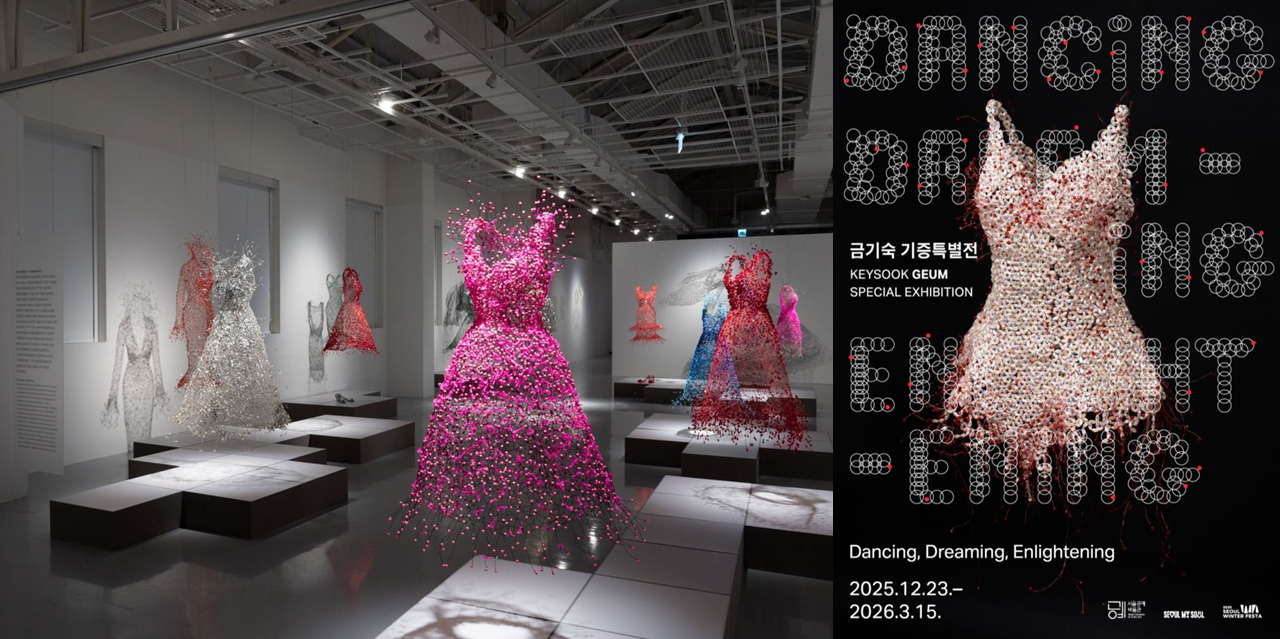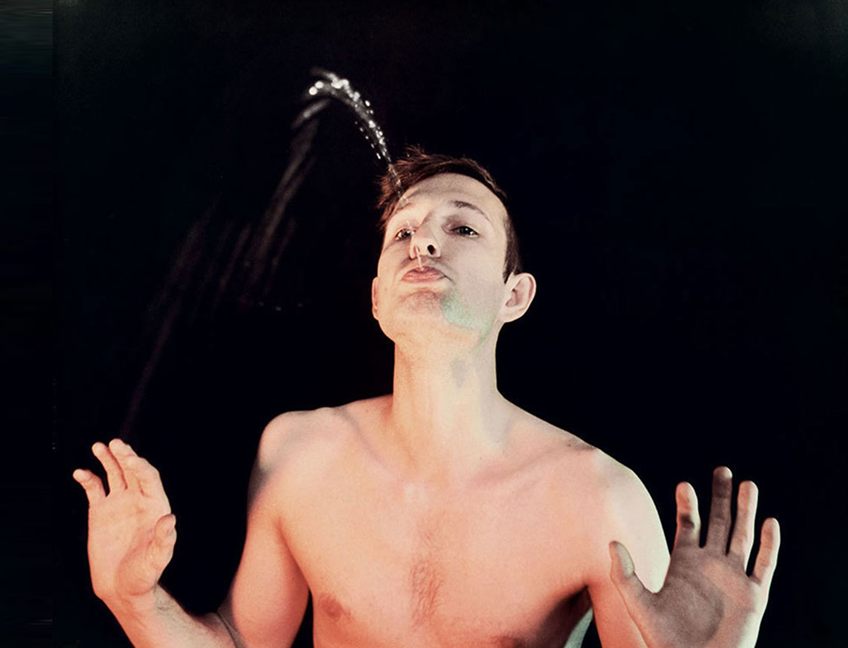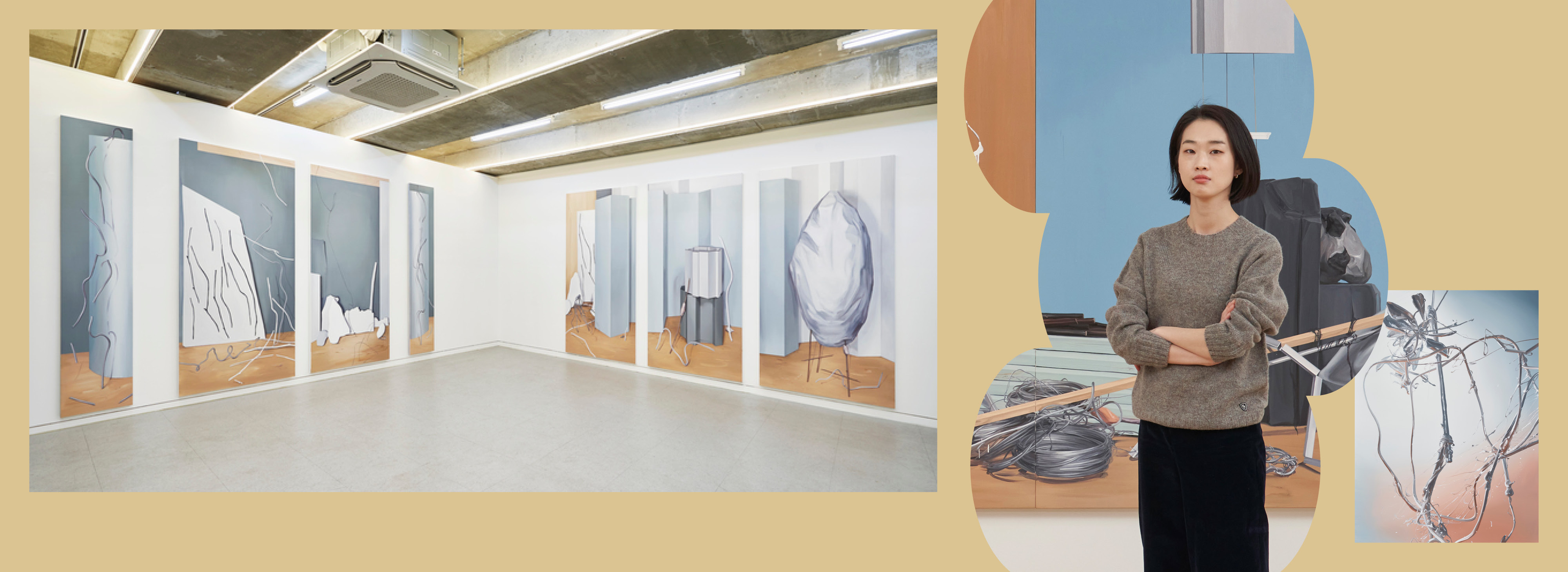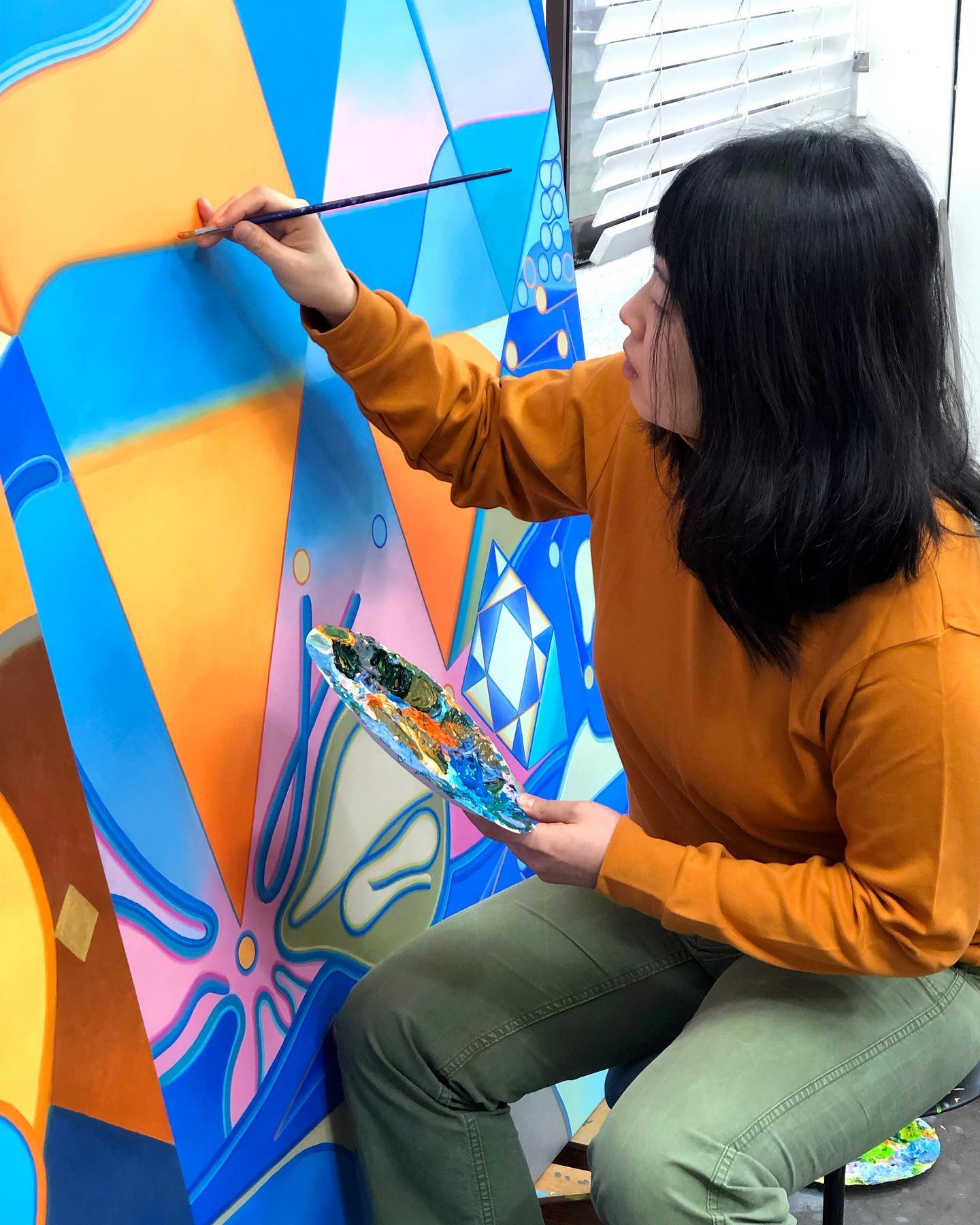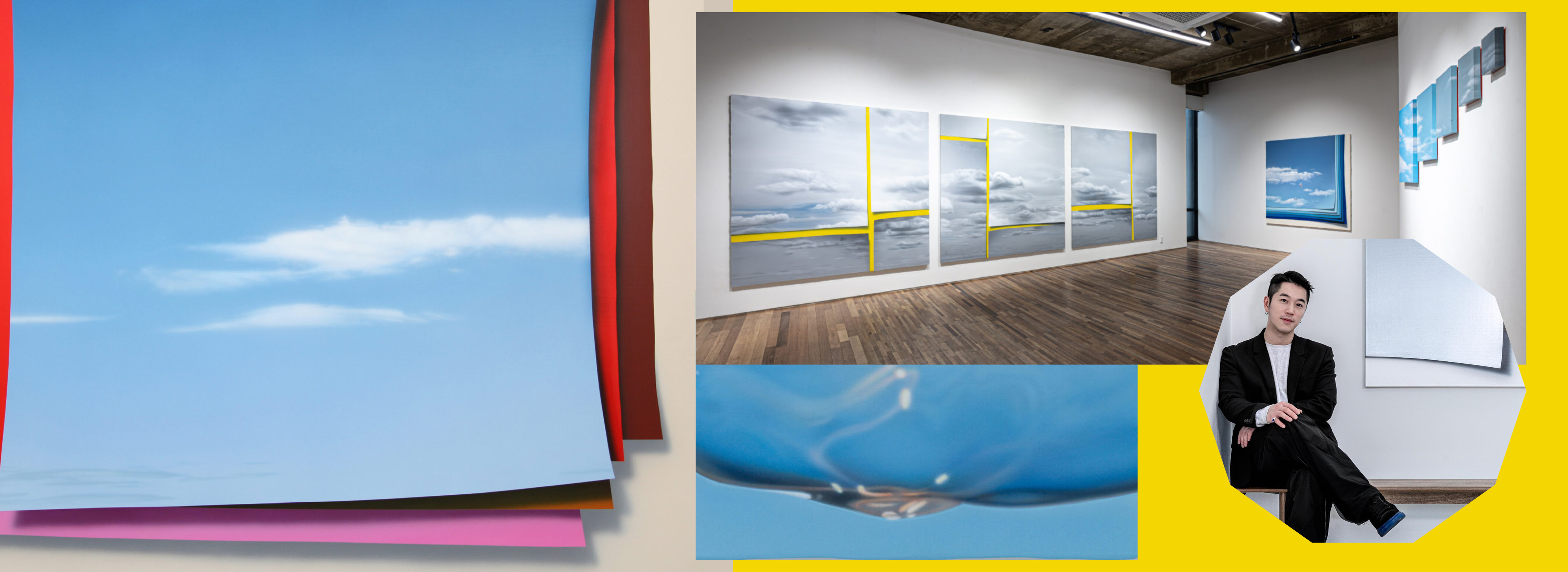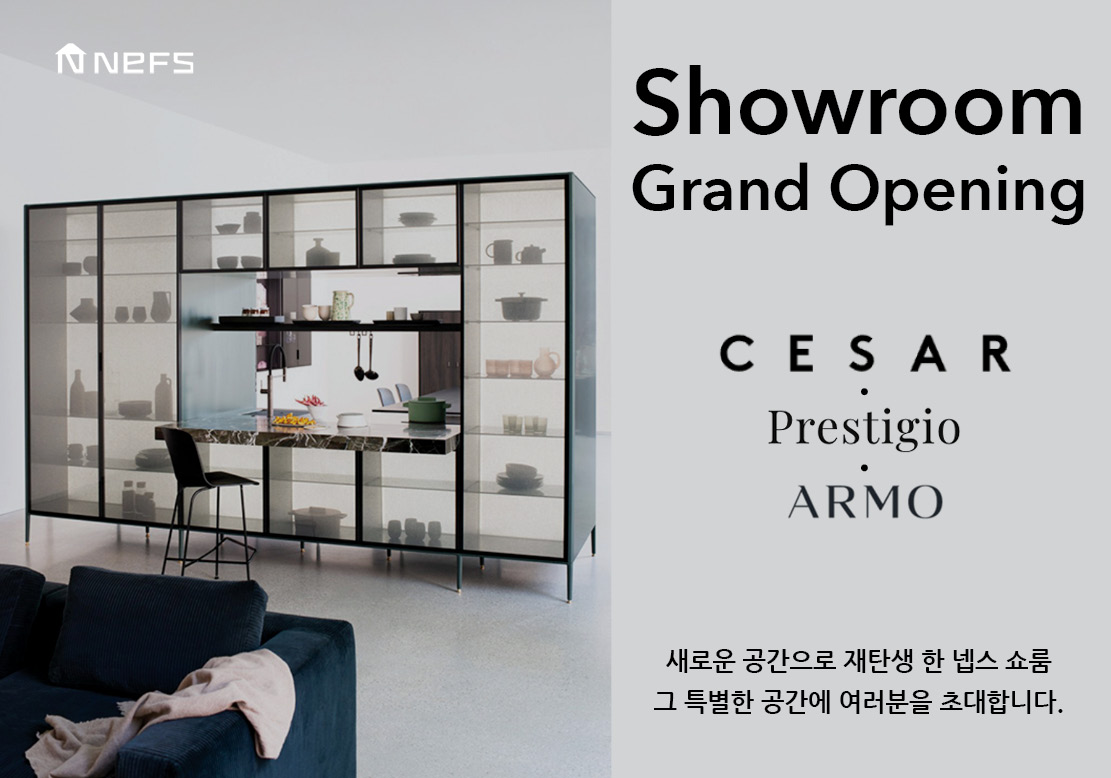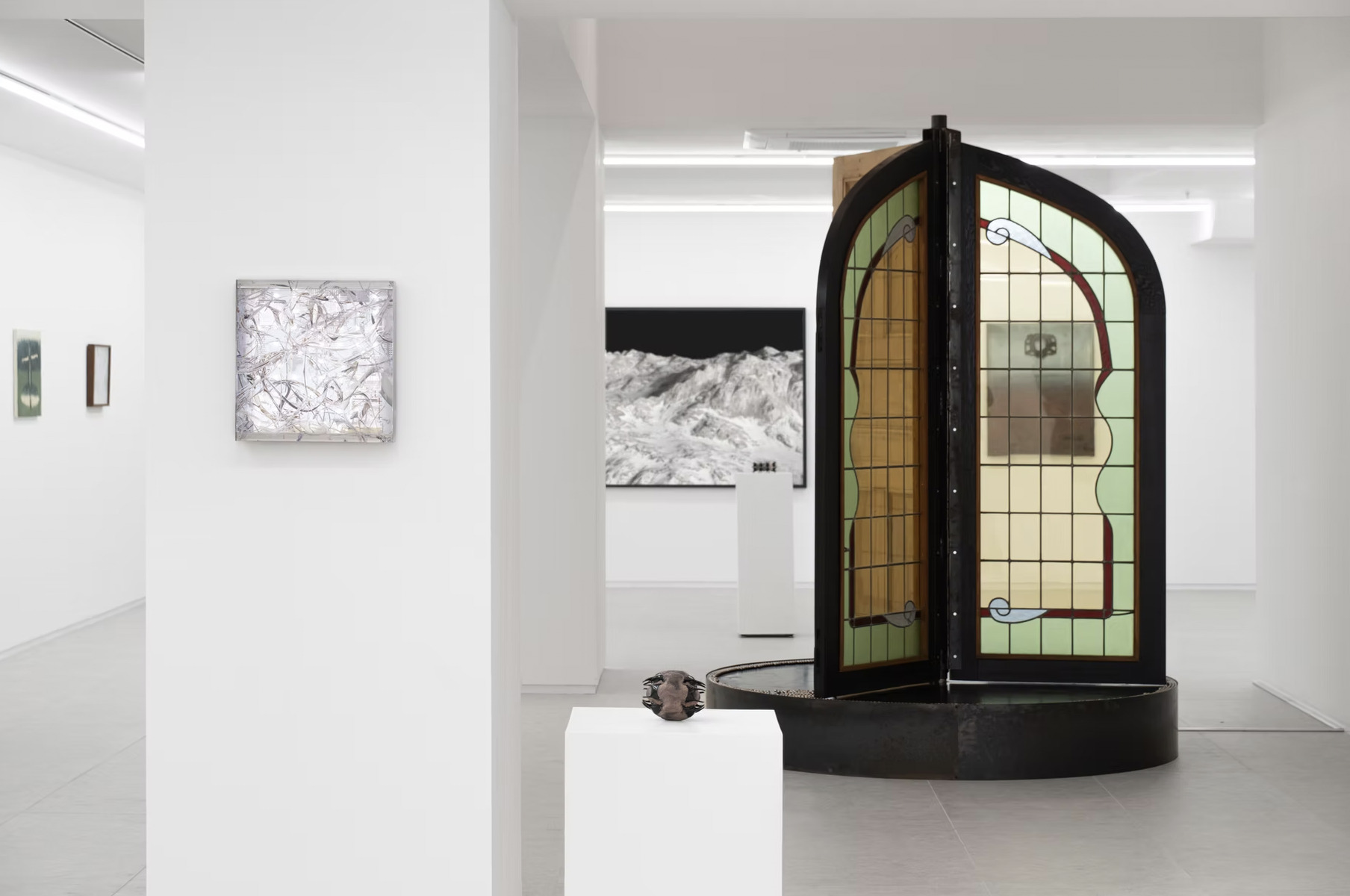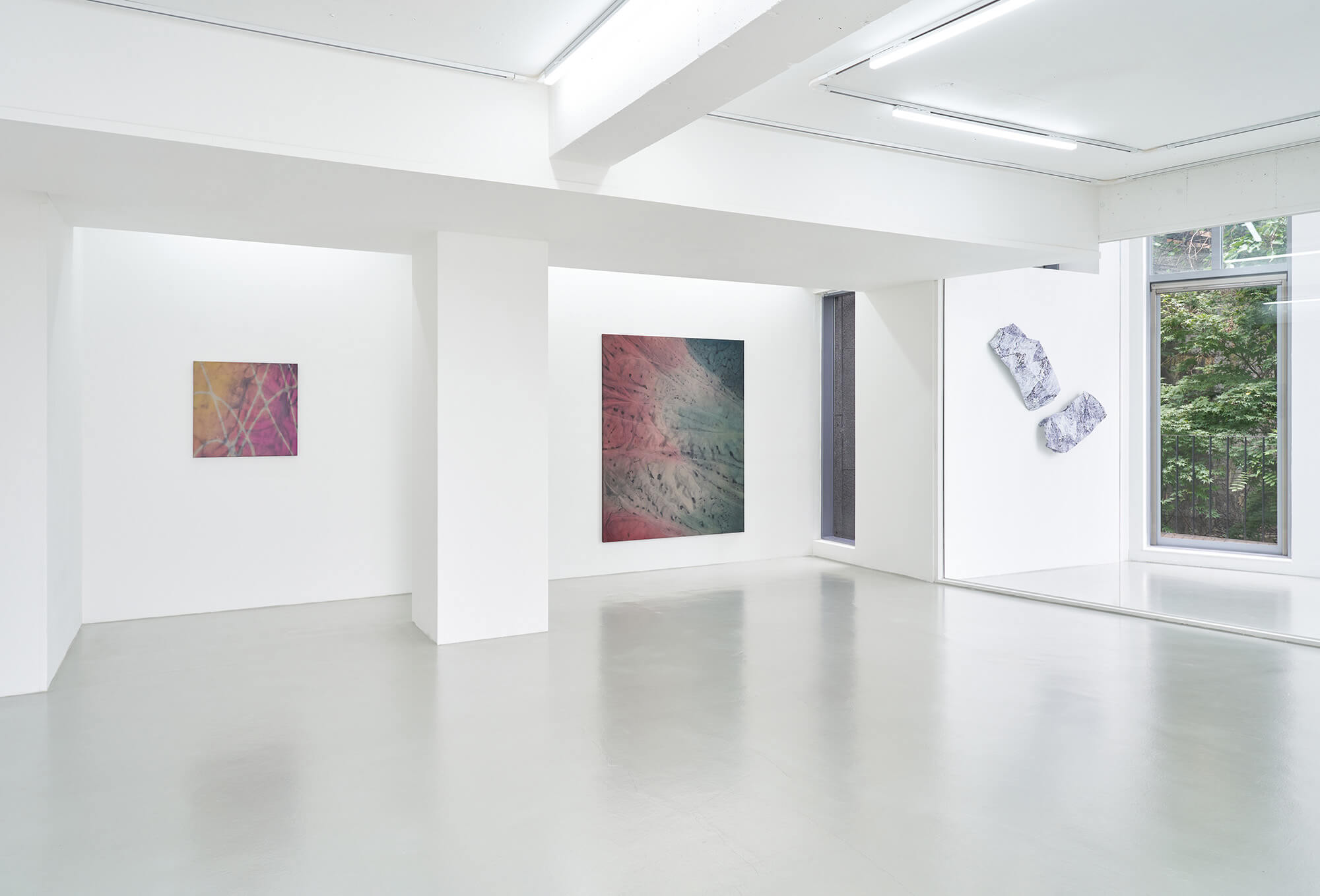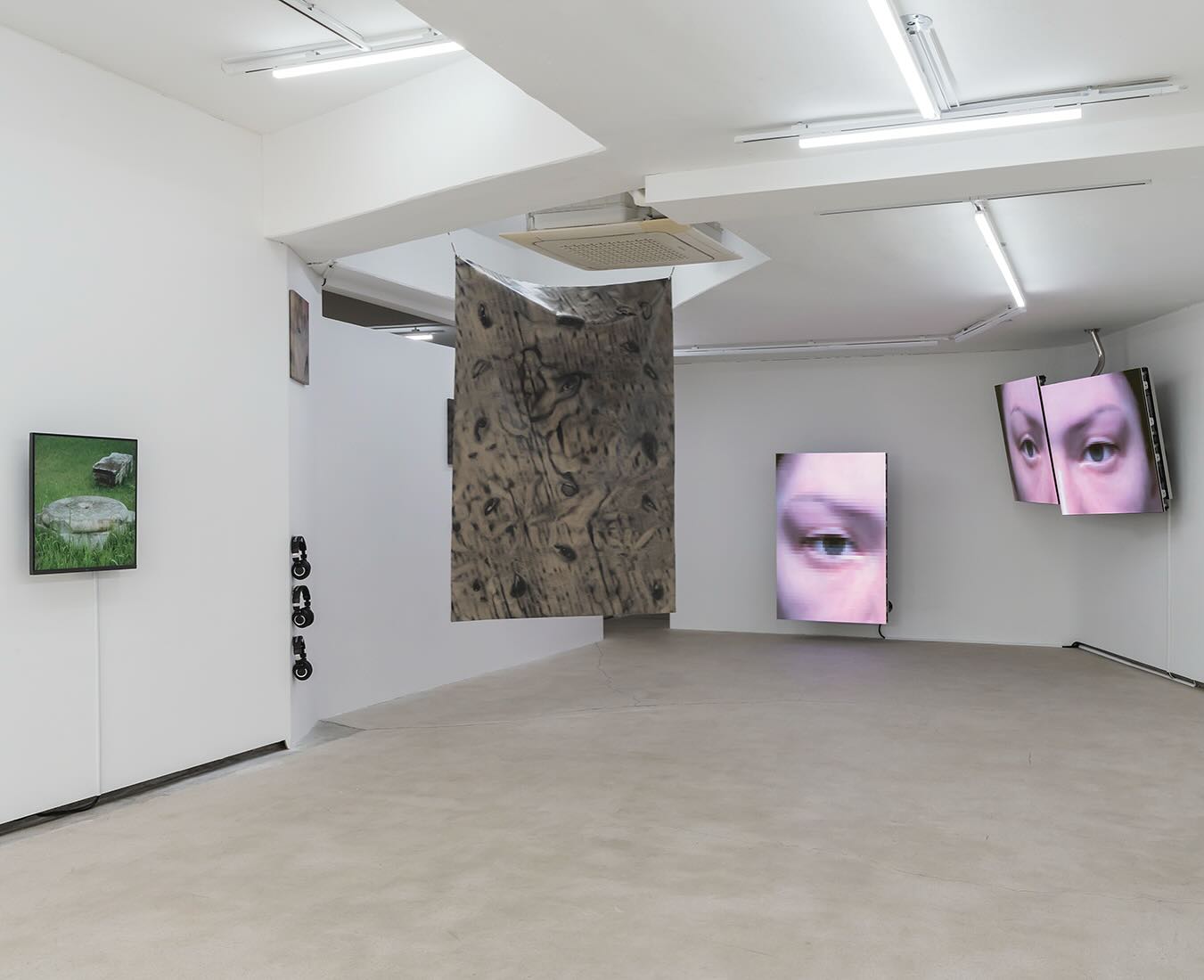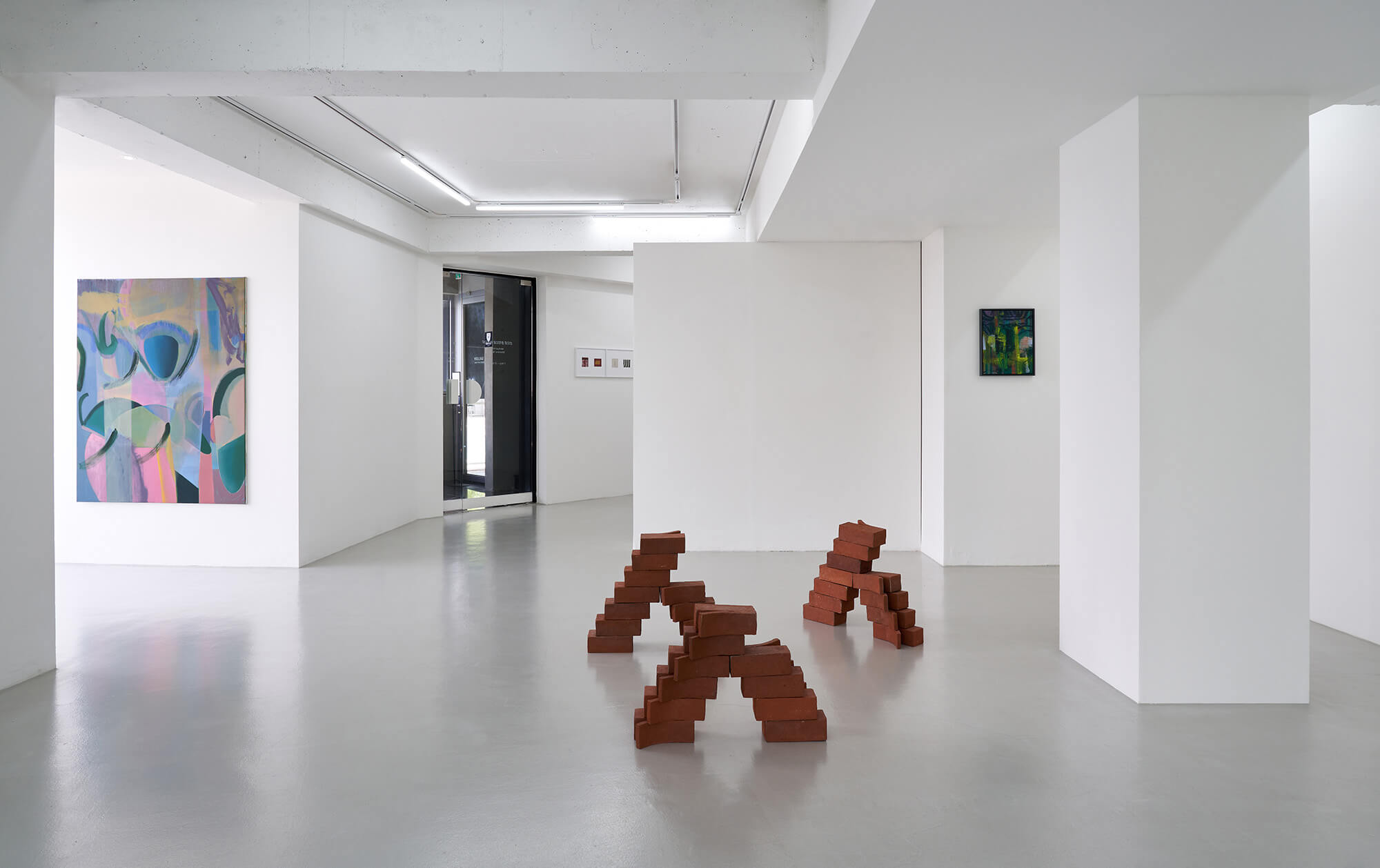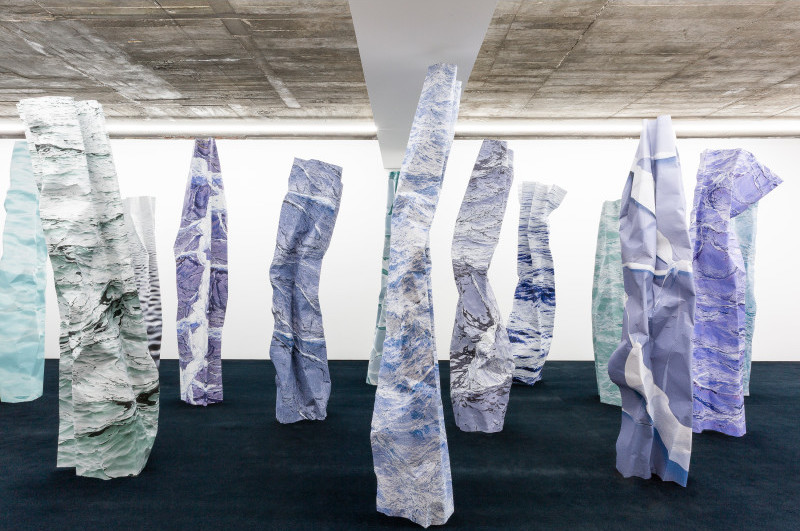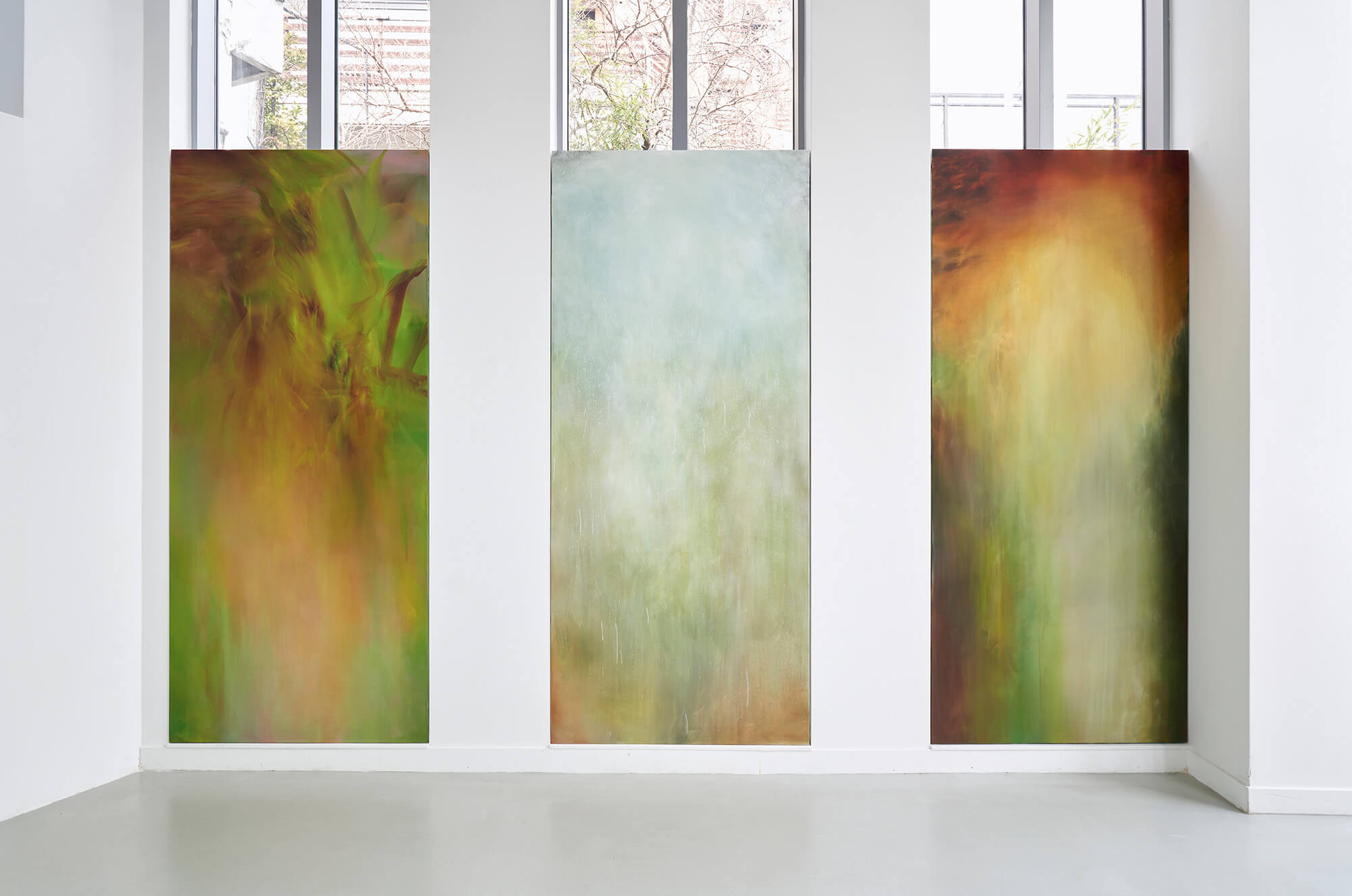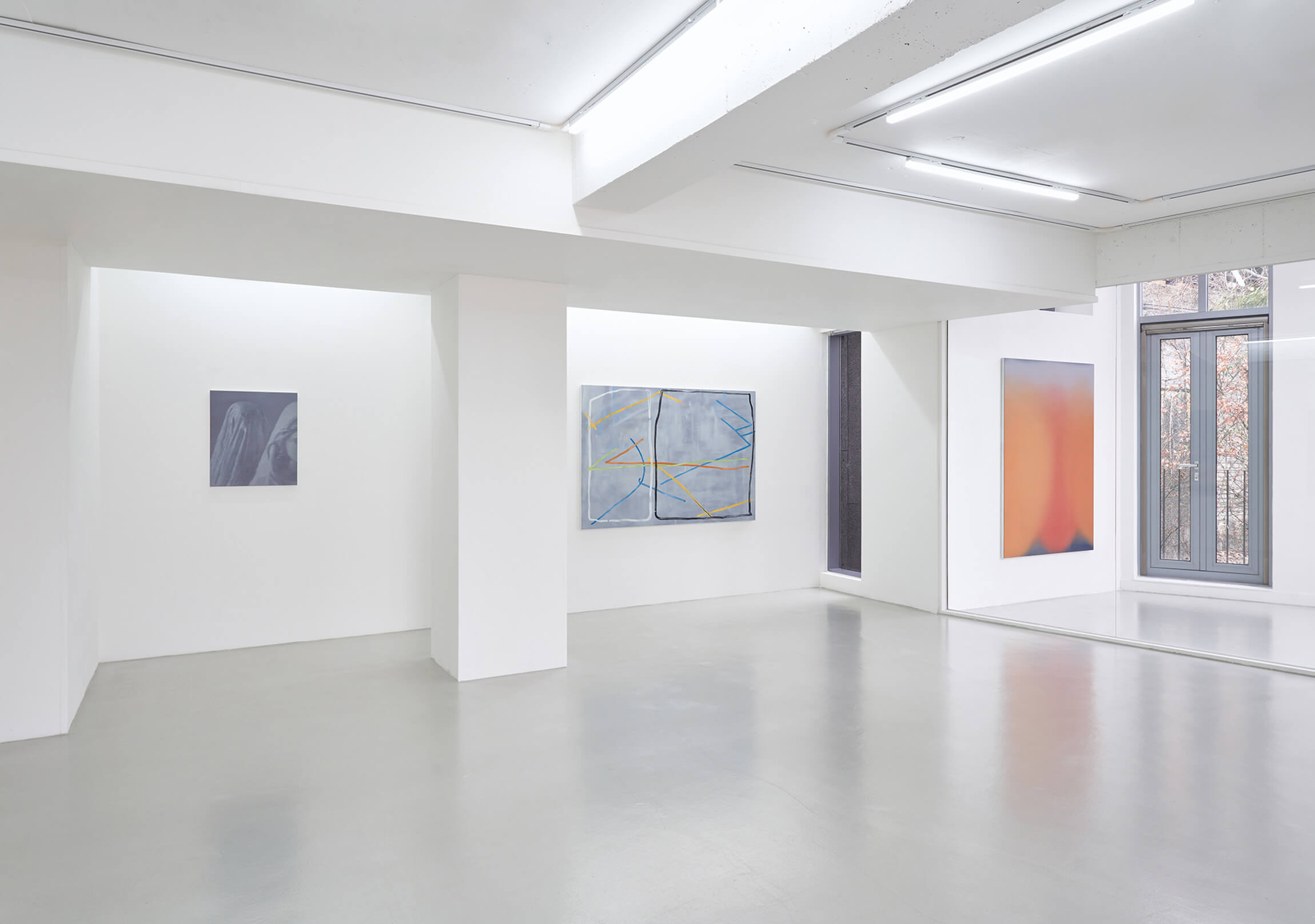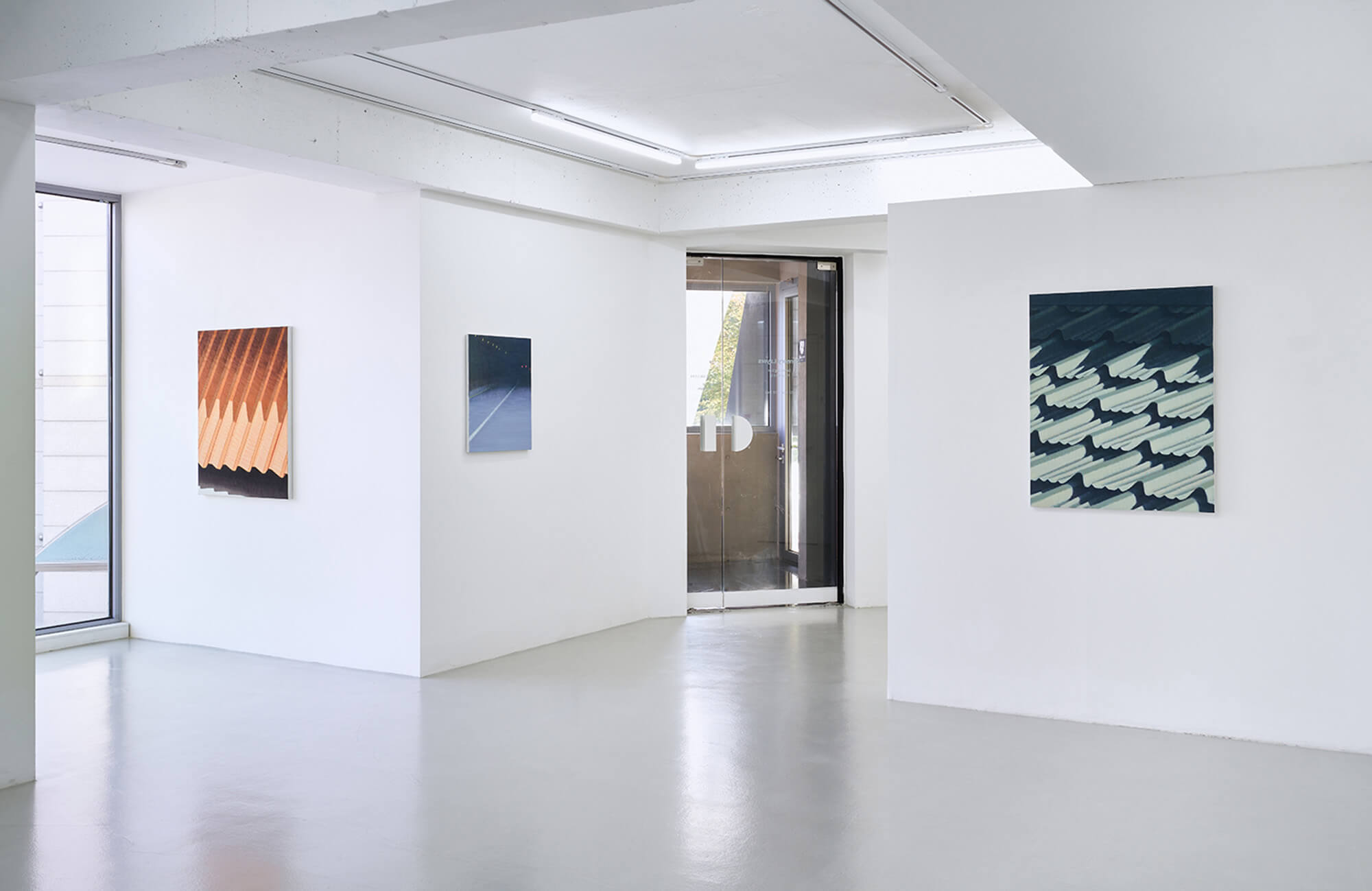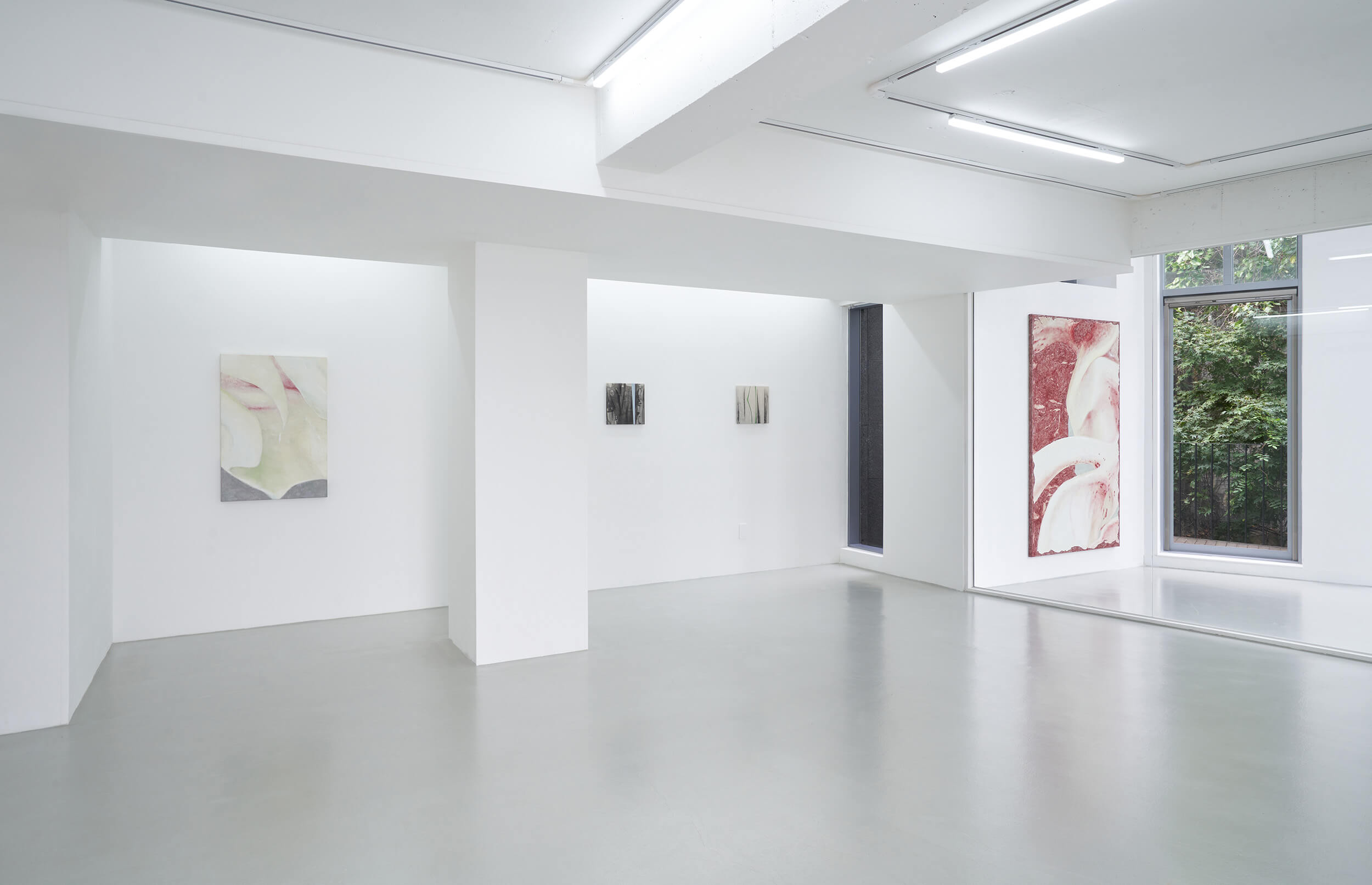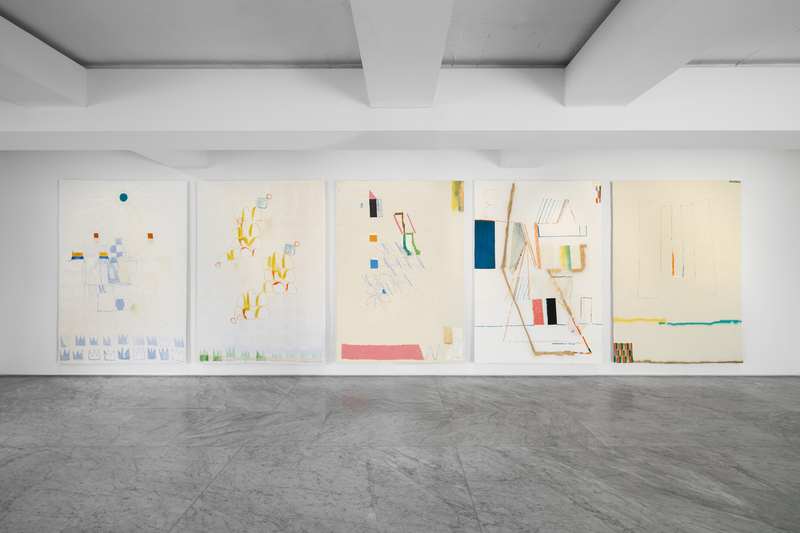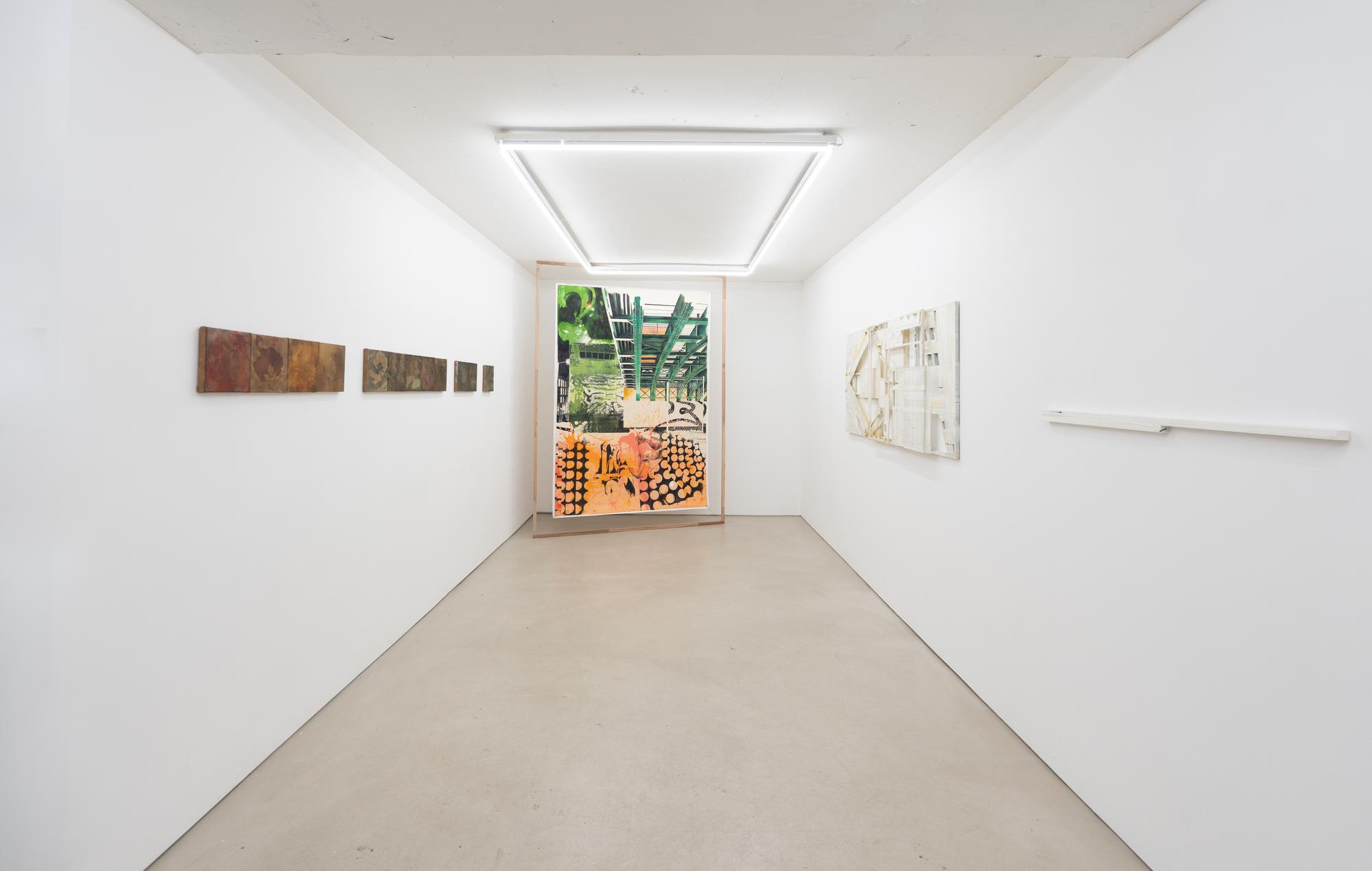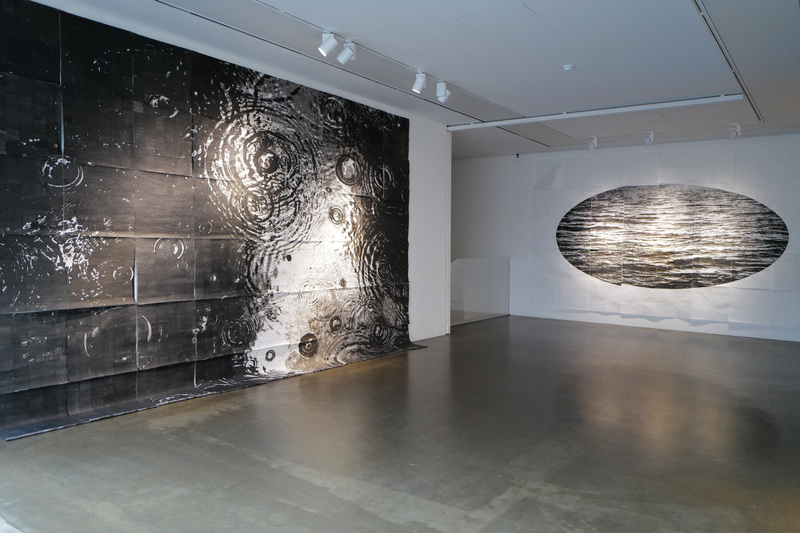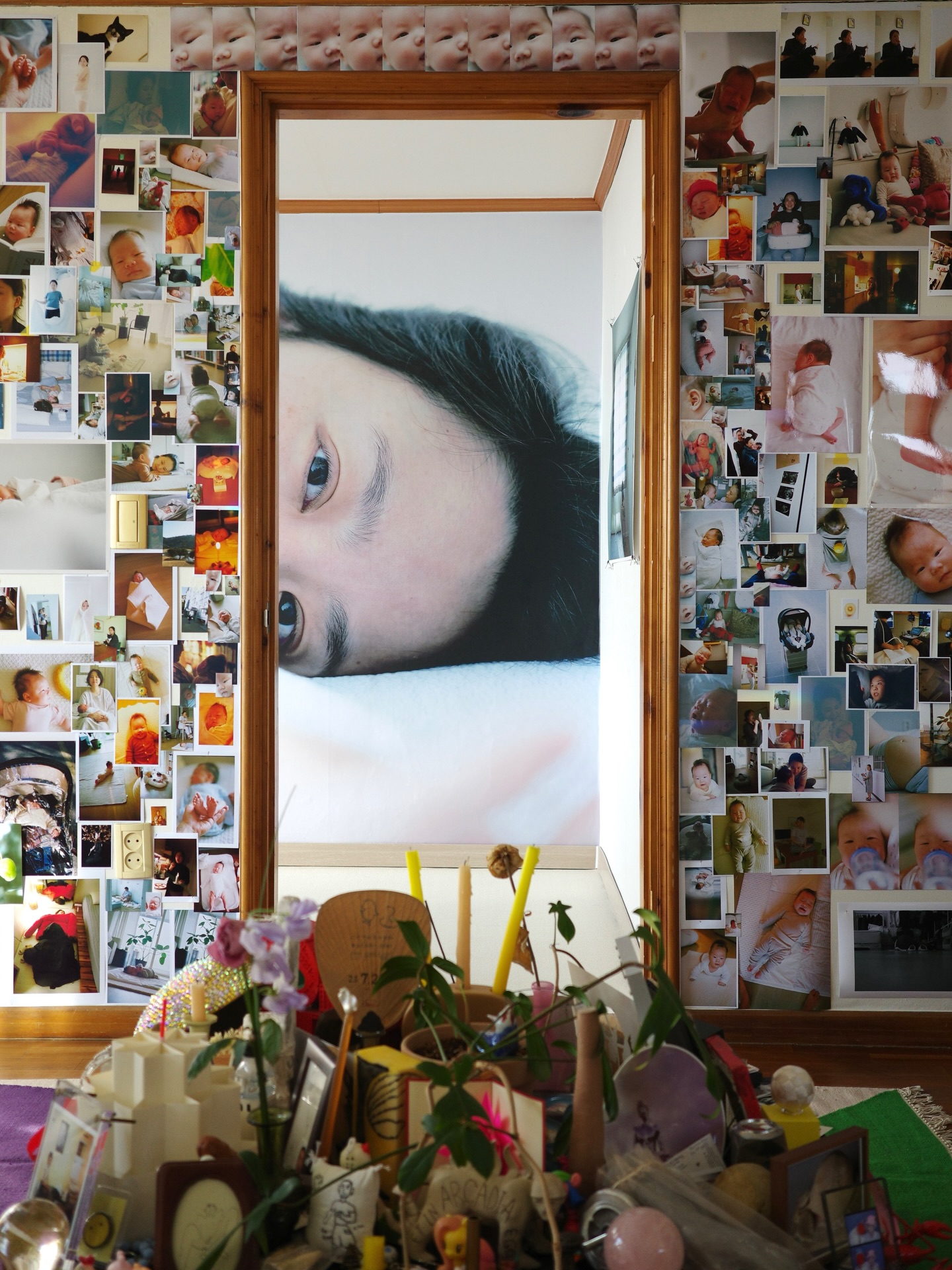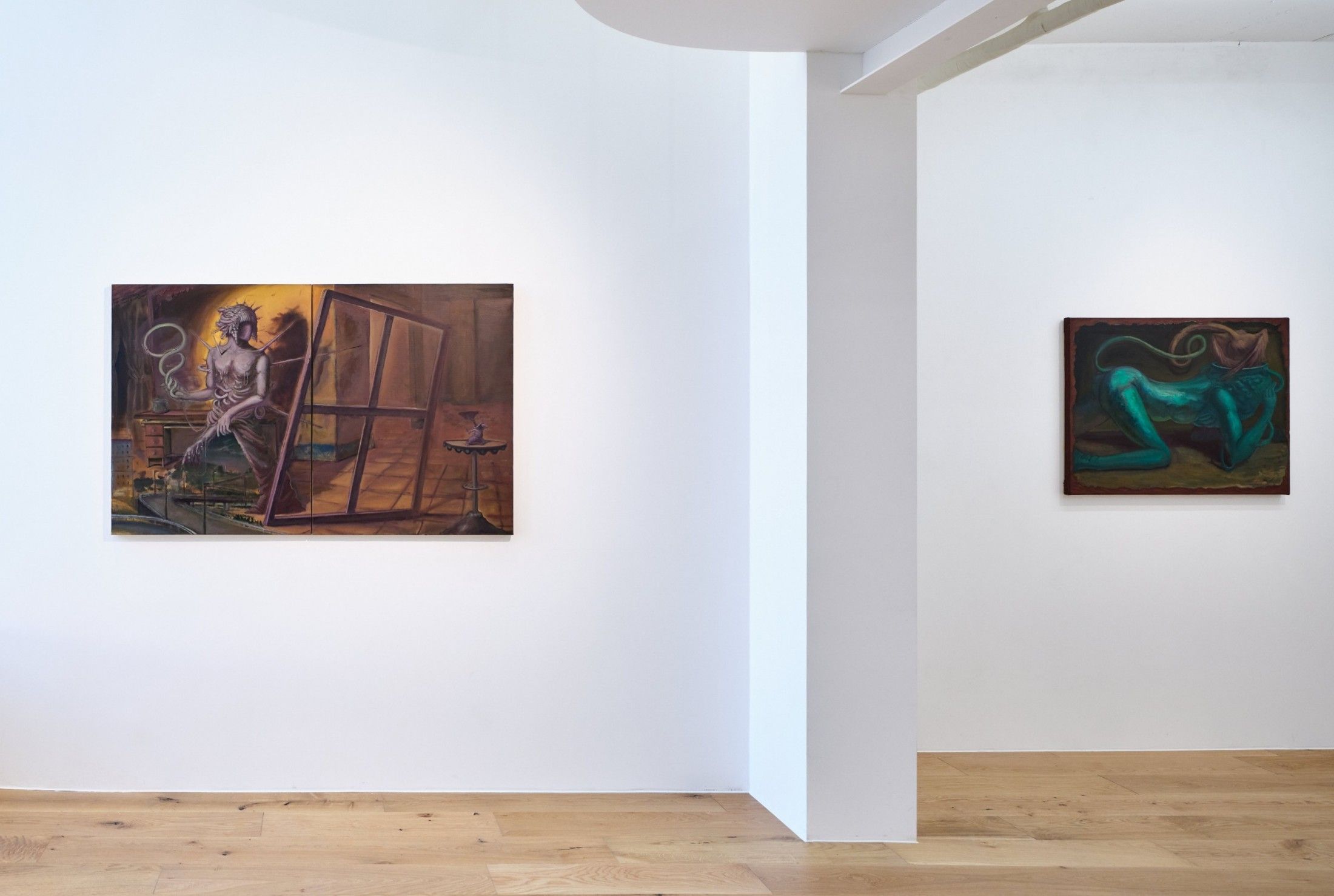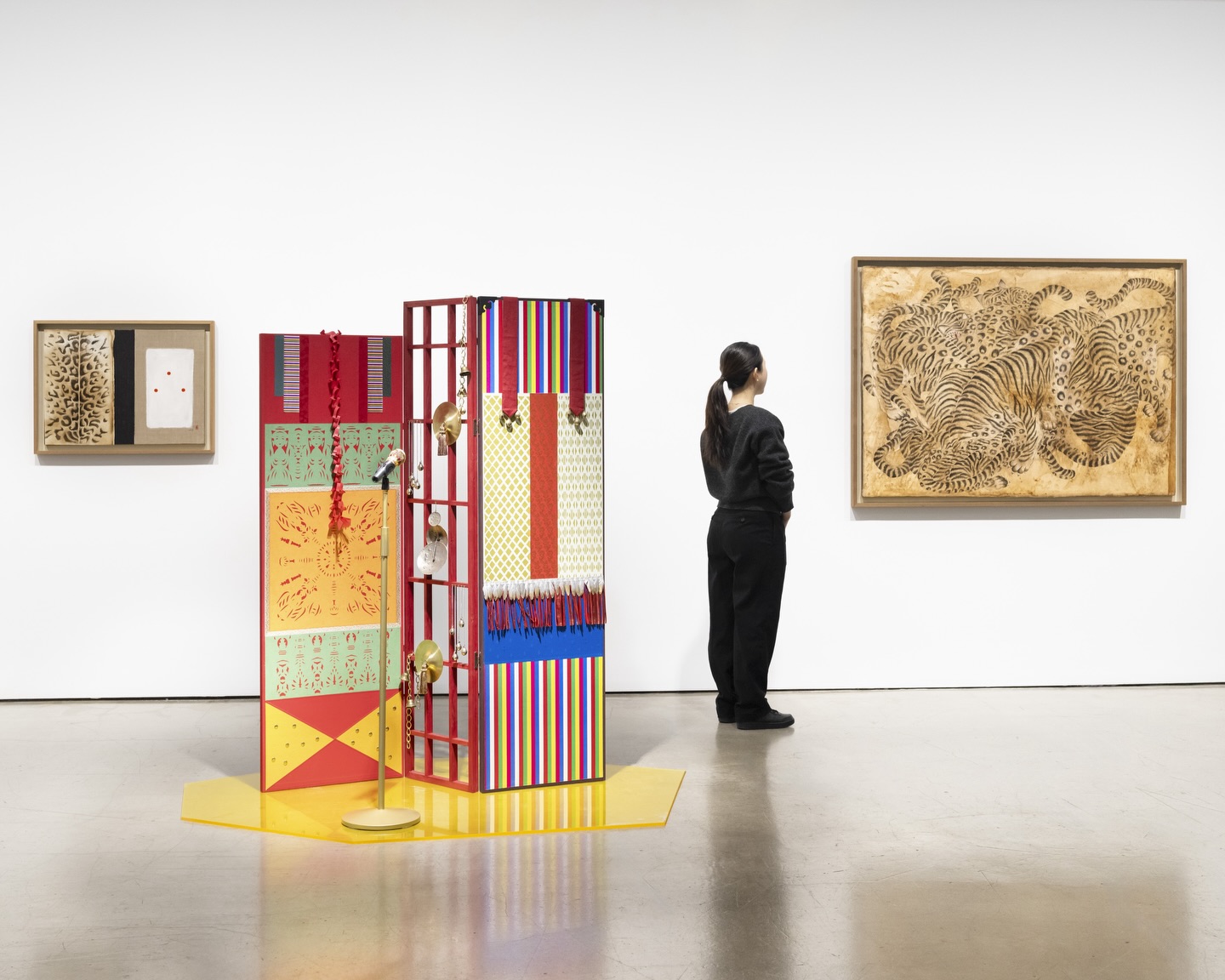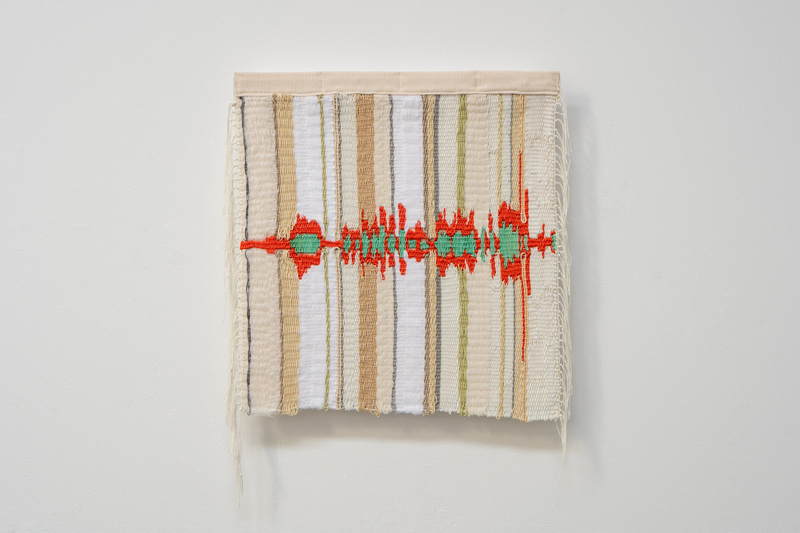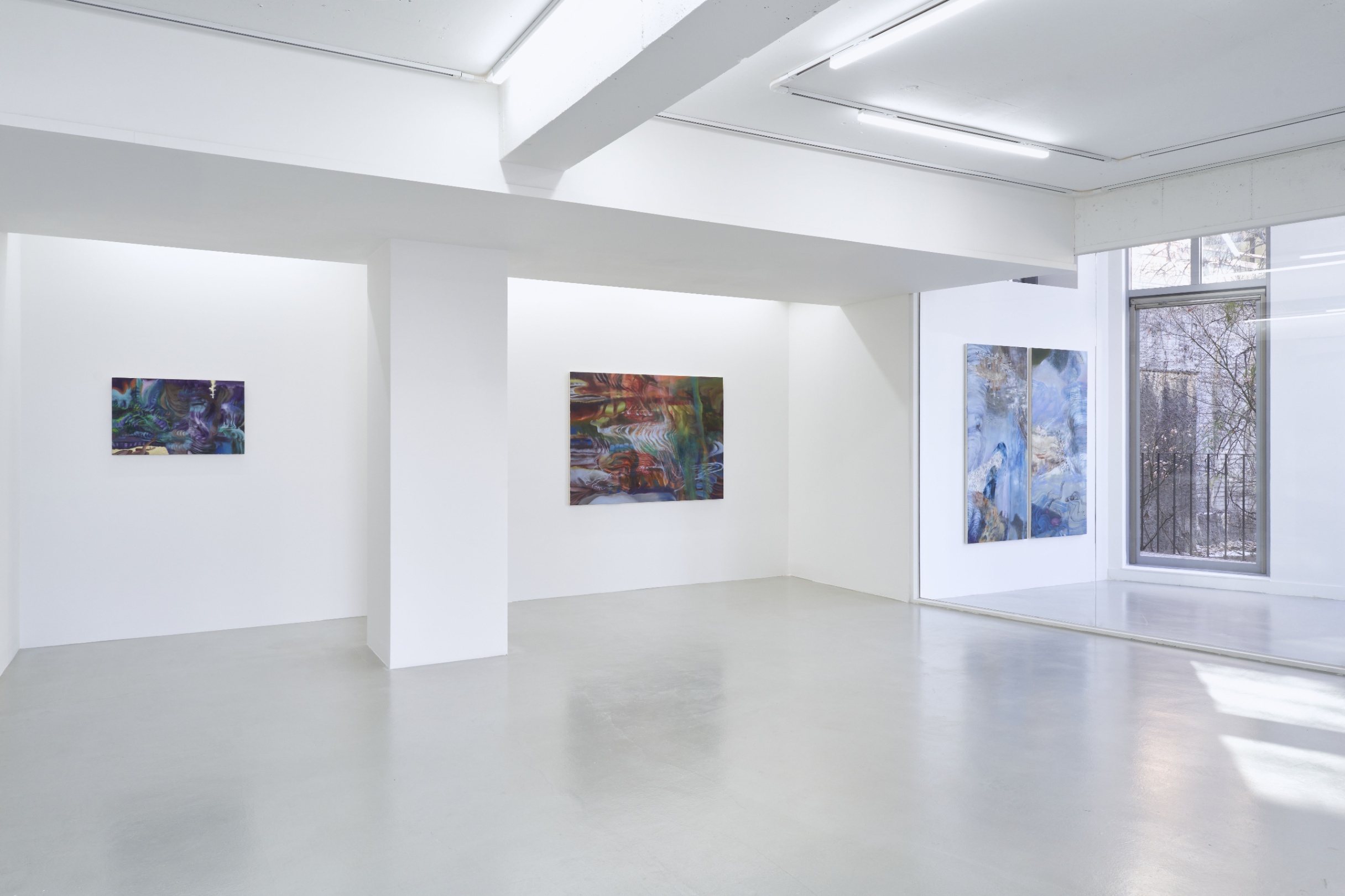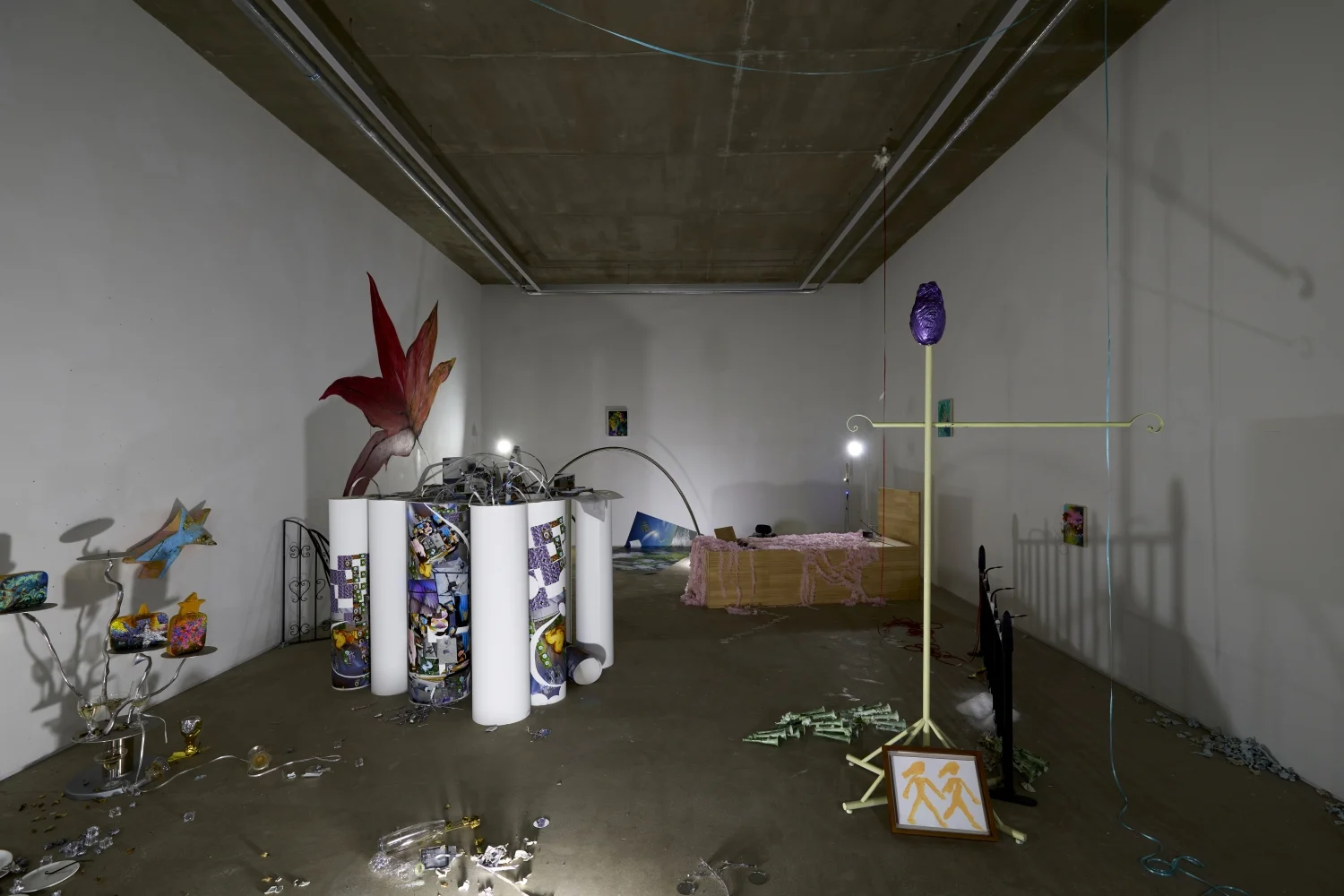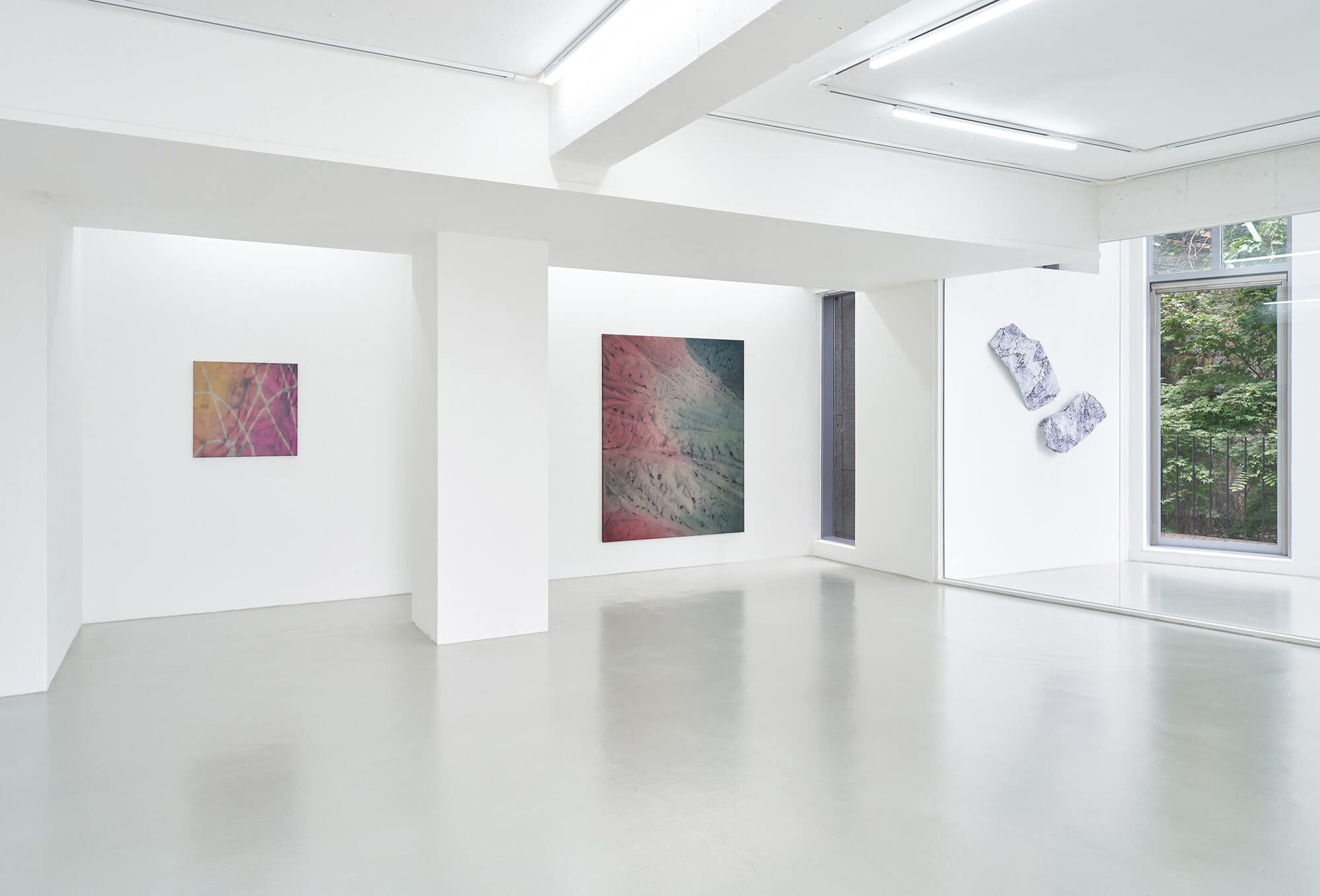 Installation view of 《Shadow Index》 ©Pipe Gallery
Installation view of 《Shadow Index》 ©Pipe GalleryPipe
Gallery presents a two-person exhibition 《Shadow Index》
by Daum Kim and Seungwon Yang, on view through October 15.
The
exhibition illuminates the intersection of sensation and memory, exploring this
terrain through the distinct practices of the two artists. Kim and Yang each
reveal traces of emotion and memory that lie beneath the surface of reality,
using their respective material vocabularies to evoke a space where the real
and the unreal, the individual and the social, the experiential and the fictional
converge.
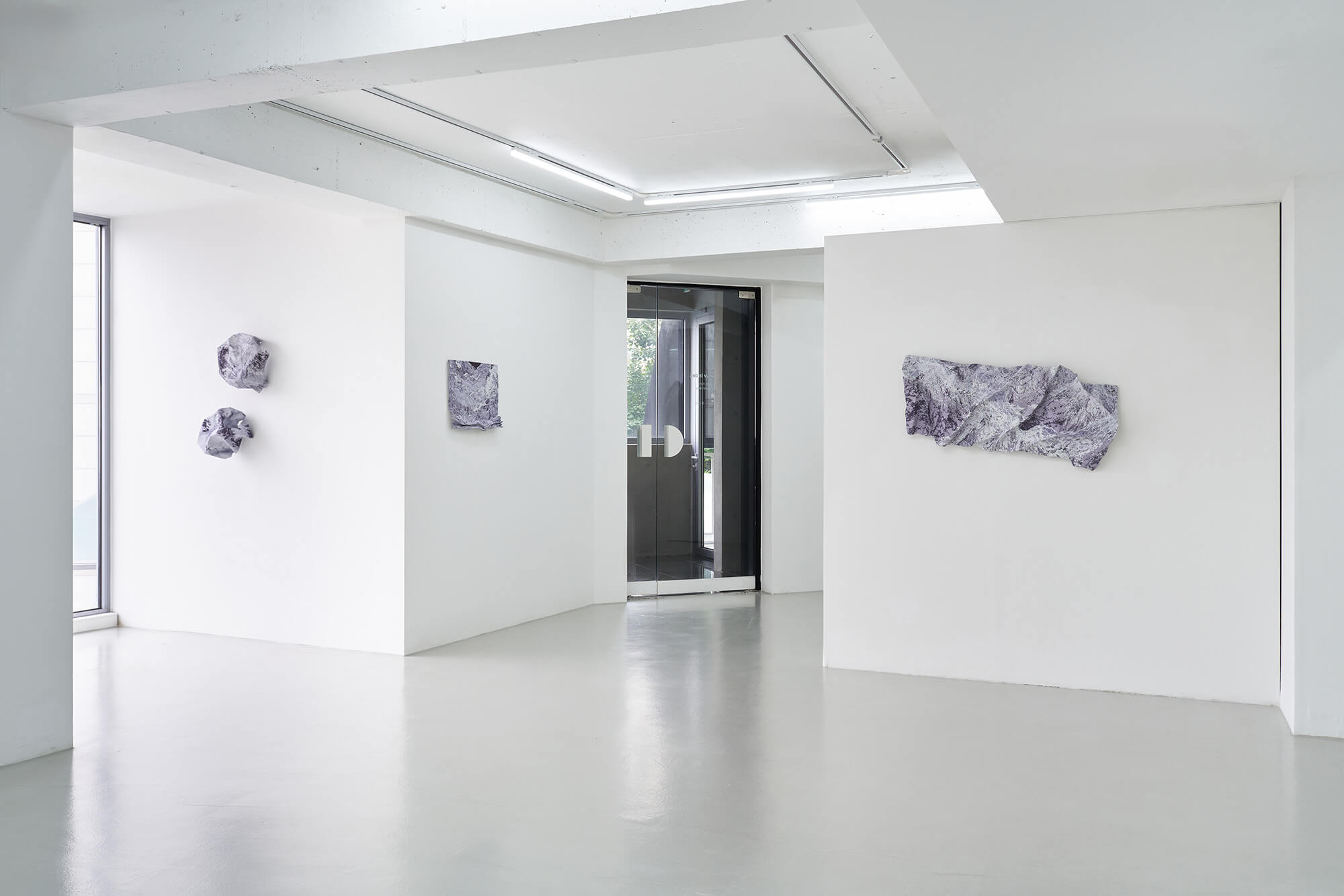 Installation view of 《Shadow Index》 ©Pipe Gallery
Installation view of 《Shadow Index》 ©Pipe GalleryDaum Kim’s(b. 1983) practice consistently engages the notion of
the interface to visualize the boundaries between physical space and virtual
environments, as well as between private experience and social context. Though
rooted in painting, his surfaces unfold less as fixed images than as dynamic
fields of sound, vibration, and memory.
Pools of pigment that reflect light like shallow puddles are
interspersed with raised, textured areas, creating a tactile topography. These
subtle variations in depth reveal the moment when his visual language—refined
through video, sound, public art, and installation—manifests as visible waves
within the medium of painting.
Seungwon Yang’s(b. 1984) practice began with a critical inquiry
into the indexicality and fictive nature of photography, gradually evolving
through processes of image fragmentation and transformation. His recent works
align the fluidity of memory with the properties of water, shifting
photographic images into forms that resist fixity yet retain traces.
Three-dimensional pieces—crumpled or bent under the premise of
photography’s inherent stillness—reveal points of overlap between past and
present, reality and fiction. His work remains in constant flux, materially
articulating the ways in which memory is reshaped through social experience and
environment.
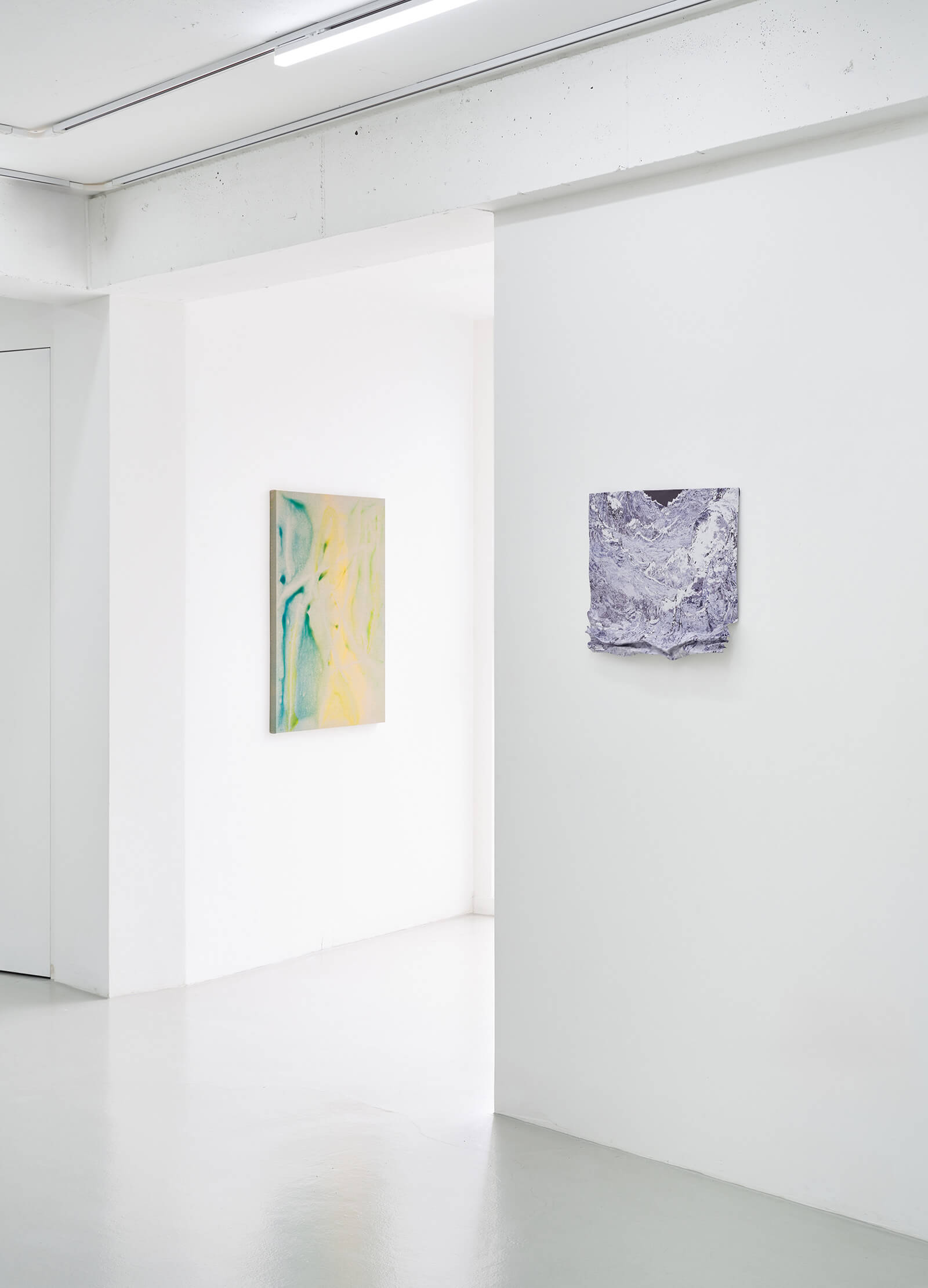 Installation view of 《Shadow Index》 ©Pipe Gallery
Installation view of 《Shadow Index》 ©Pipe GalleryIn 《Shadow Index》, the two artists present
fragments of traces—captured through their respective media—as shadow-like
indices. Rather than offering a coherent narrative, Daum Kim’s sensory
waveforms and Seungwon Yang’s shards of memory draw the viewer into an
experience of slippage and dispersal, inviting an exploration of the latent
strata beneath the surface of familiar reality.
Within this shadowed realm, the works do not claim a singular
truth; instead, they unfold as indices of elusive sensations and fleeting
memories. As viewers trace these fragments, they encounter how memory and
perception shift and are reconfigured—an experience that extends beyond the
personal to pose broader questions about how we perceive and remember the world
under contemporary cultural and social conditions.



